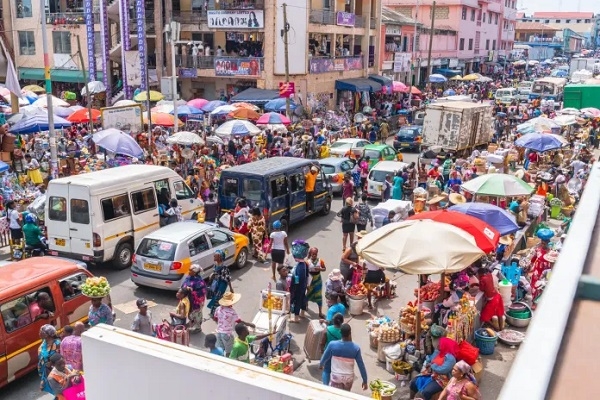Mexico Joins Brazil, Spain, France, UAE, China and South Africa in Canada Travel Alert as Instability, Security Threats and Political Tensions Redefine International Travel - Travel And Tour World
Sunday, May 25, 2025

Canada’s May 2025 travel alert now includes Mexico alongside Brazil, Spain, France, the UAE, China, and South Africa, as the global travel landscape becomes increasingly volatile. The update from Global Affairs Canada reflects a sharp rise in regional instability, violent crime, civil unrest, and geopolitical tensions affecting popular international destinations. From cartel activity and armed protests in Mexico to heightened surveillance in China, terrorism concerns in Europe, infrastructure breakdowns in South Africa, and ongoing political flashpoints in the Middle East, Canadians face a dramatically altered set of risks when traveling abroad. This shift marks a new era in international travel—one where preparation, situational awareness, and real-time safety updates are no longer optional but essential.
This advisory highlights the importance of understanding both the visible attractions and hidden dangers that may affect Canadians overseas. Travelers are encouraged to assess not only the beauty of a destination but also the real-world risks tied to crime, unrest, and political instability.
Mexico remains a favorite among Canadian travelers, especially during the winter months, but the advisory identifies several areas as dangerous due to severe security threats. Canadians are strongly urged to avoid non-essential travel to Guerrero, Michoacán, and Sinaloa—states experiencing high levels of cartel activity, violent confrontations, and road blockades.
Recent protests outside Mexico City International Airport disrupted flight operations and caused serious delays. In cities like Culiacán and Mazatlán, armed criminal groups have set up unauthorized checkpoints, threatening both tourists and locals. Travelers are advised to use verified transportation, avoid protest zones, and follow updates from Mexican authorities to stay out of harm’s way.
Brazil’s vibrant cities attract visitors year-round, but the advisory warns Canadians about rising crime in urban centers including São Paulo, Rio de Janeiro, and Brasília. Tourists are especially vulnerable to robbery, pickpocketing, and more aggressive crimes such as express kidnappings and forced ATM withdrawals.
In nightlife areas, spiked drinks and scams targeting foreigners have been widely reported. Border regions near Venezuela and Colombia remain unsafe due to smuggling, gang activity, and poor law enforcement. Canadians are advised to avoid carrying valuables, limit phone use in public, and stay clear of high-crime areas and border zones.
The travel advisory continues to include France due to elevated terrorism risk and ongoing incidents involving street crime. With enhanced police and military presence in Paris, Lyon, and Marseille, tourists can expect frequent security checks. Recent bomb scares and evacuations have added to the climate of alert.
Street theft is especially common near landmarks like the Eiffel Tower and Louvre Museum. In Spain, Canadian travelers face similar threats in Barcelona and Madrid, where organized groups use distraction techniques—such as fake spills or impersonations—to rob tourists. Demonstrations in Catalonia have caused temporary road closures and transportation disruptions, prompting Canadian authorities to recommend avoiding political gatherings and using caution in crowded places.
South Africa’s advisory status has worsened, with the government citing a combination of violent crime and infrastructure breakdowns. The country experiences rolling power outages known as load shedding, which cut off electricity for hours and leave communities vulnerable.
Armed robberies, home invasions, and carjackings have increased in major cities like Johannesburg, Pretoria, and Cape Town. Even in natural settings like parks and hiking trails, tourists have reported attacks. Travelers are urged to avoid traveling after dark, stay in secure accommodations, and book airport pickups in advance. Public transportation is not recommended for visitors.
The United Arab Emirates is still considered one of the safer Middle Eastern destinations, but Canada’s advisory includes warnings about regional instability. Past missile and drone incidents targeting Abu Dhabi and Dubai, though largely intercepted, demonstrate the risk of spillover from broader regional conflicts.
Visitors should also watch for romance and digital scams, which have become increasingly sophisticated. Female travelers should familiarize themselves with UAE laws, especially regarding harassment and consent, as legal outcomes may differ significantly from Canadian expectations.
Canada’s advisory on China warns of unpredictable legal enforcement, intense digital surveillance, and frequent tourist scams. Foreign travelers—including Canadians with dual nationality—may face detention or entry restrictions in sensitive areas such as Tibet and Xinjiang.
In Beijing and Shanghai, tourist-targeted scams involving fraudulent tea ceremonies and overpriced gallery visits are still prevalent. Canadians are urged to avoid politically sensitive discussions, keep a low digital footprint, and avoid engaging in online commentary that could be misinterpreted by local authorities.
Global Affairs Canada emphasizes that all Canadians planning international trips should register with the Registration of Canadians Abroad service. This ensures timely alerts and emergency assistance if conditions deteriorate while abroad.
Comprehensive travel insurance is also strongly advised, covering unexpected events such as medical emergencies, cancellations, or evacuations. Before departure, travelers should research local customs, emergency contact numbers, and travel restrictions for their destination.
Important safety tips include staying in secure neighborhoods, using anti-theft gear, avoiding public interaction with strangers, and carrying backup copies of key documents. Keeping in regular contact with friends or family while abroad is also encouraged to ensure someone remains informed of your movements.
Canada travel advisory updates reflect a world where the return to global tourism is marked by complex and shifting risks. Whether visiting ancient ruins in Asia, exploring European capitals, or relaxing on Latin American beaches, Canadian travelers must balance curiosity with caution.
By staying informed, planning carefully, and respecting local laws and conditions, travelers can still enjoy enriching international experiences. The May 2025 advisory doesn’t discourage exploration—it reinforces the need to travel smartly, stay alert, and adapt to the realities of a changing world.













